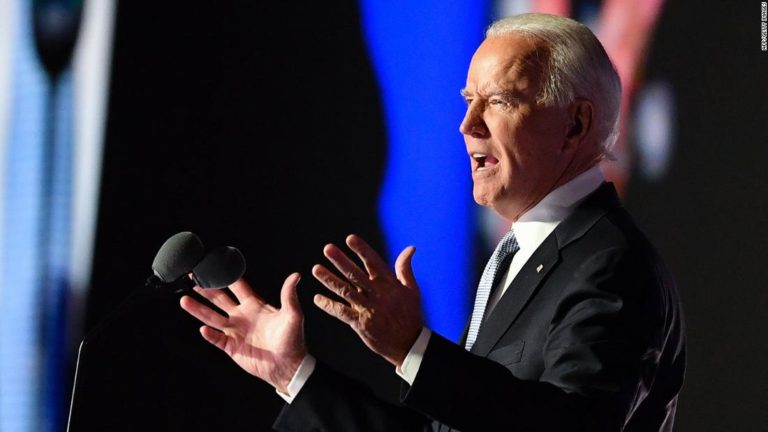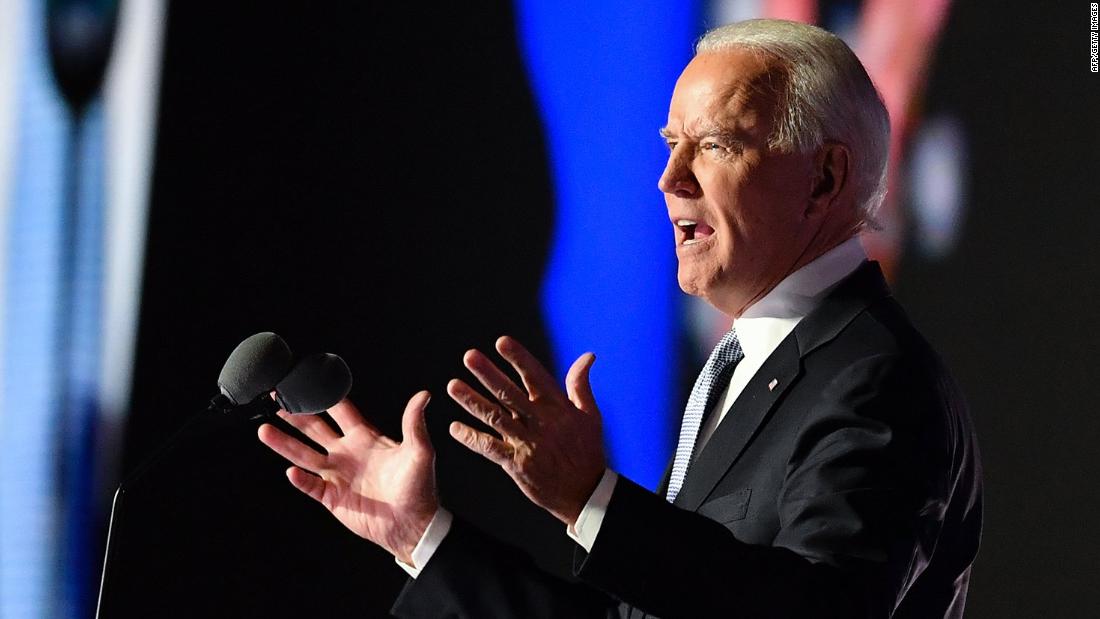

Last week, many celebrated Joe Biden for embracing transgender Americans in his victory address – the first president-elect to do so.
“And to all those who supported us: I am proud of the campaign we built and ran. I am proud of the coalition we put together, the broadest and most diverse in history,” Biden said. “Democrats, Republicans and Independents. Progressives, moderates and conservatives. Young and old. Urban, suburban and rural. Gay, straight, transgender.”
In just a few short sentences, Biden signaled his readiness to usher in an era of renewed LGBTQ protection after four years of the very opposite.
Biden and Vice President-elect Kamala Harris ran on what Alphonso David, the president of the Human Rights Campaign, billed in August as “our nation’s most pro-equality ticket in history.”
Among other things, he was referring to Harris’ pro-LGBTQ track record, which goes back to when she entered politics in 2004, and to the former vice president’s radical shift on LGBTQ rights. Biden went from voting for the discriminatory Defense of Marriage Act in 1996 to getting out ahead of former President Barack Obama in publicly backing marriage equality in 2012.
Biden and Harris’ win in the 2020 election couldn’t have arrived at a better time for LGBTQ Americans and those who care about equality. It’s no secret that under President Donald Trump, anti-LGBTQ ugliness has become a newly visible norm.
An extensive 2019 report from ProPublica cataloged the Trump administration’s anti-LGBTQ maneuvering and “found dozens of changes that represent a profound reshaping of the ways the federal government treats the more than 11 million lesbian, gay, bisexual and transgender Americans.”
These changes include reversed, dropped, removed and withdrawn LGBTQ protections in areas such as employment, health care, criminal justice and public life.
In particular, the administration has made a target of transgender Americans, whom some LGBTQ advocates say the Trump White House has attempted to use as a wedge against the broader coalition.
Read more from Brandon Tensley:
During Pride Month this past June, the administration rolled back an Obama-era regulation prohibiting discrimination in health care against transgender patients. (In August, a federal judge blocked the rollback, a day before it would’ve gone into effect.)
There’s also Supreme Court Justice Amy Coney Barrett, Trump’s third pick to the high court.
During the Senate hearings in October, Republicans and the Christian right sought to brand Barrett as a sort of conservative feminist icon, an approach that hinged on their apparent obsession with her family size.
For many LGBTQ Americans, though, the new justice is more like a specter, waiting to strike at their rights.
Barrett has limited experience as a federal judge. But that doesn’t mean that she hasn’t participated in important cultural and political conversations and, in consequence, offered insight into her convictions.
For instance, in a lecture at Jacksonville University in the run-up to the 2016 election, Barrett supported the dissenters in “Obergefell v. Hodges,” the 2015 Supreme Court ruling that cleared the way for marriage equality nationwide. She also signaled that the Title IX rights protecting transgender Americans should be subject to congressional review.
“Maybe things have changed so that we should change Title IX,” Barrett said in 2016. “Maybe those arguing in favor of this kind of transgender bathroom access are right. … But it does seem to strain the text of the statute to say that Title IX demands it, so is that the kind of thing that the Court should interpret the statute to update it to pick sides on this policy debate? Or should we go to our Congress?”
In a similar vein, an October report from The Associated Press detailed Barrett’s previous position, for almost three years starting in 2015, on the board of a private Christian school system, one that the AP said has anti-LGBTQ policies.
The system “effectively barred admission to children of same-sex parents and made it plain that openly gay and lesbian teachers weren’t welcome in the classroom,” the AP found.
While it remains to be seen whether Barrett’s opinions on the 6-3 conservative majority high court will track with her prior stances and affiliations, the anxiety hovering over LGBTQ Americans is real.
“Lawyers are sharing advice for how same-sex families can ensure legal protections if marriage equality goes away – secure second-parent adoption papers, living wills, healthcare proxies,” as Allison Hope wrote for CNN Opinion. “We don’t and can’t know for sure how Barrett will rule on cases relating to LGBTQ rights, but the overall signs, given past comments and statements from other conservative justices on the Court, are not promising.”
Just on Thursday, Supreme Court Justice Samuel Alito reiterated in an inflammatory speech his retrograde belief that marriage is only between a man and a woman.
“Until very recently, that’s what the vast majority of Americans thought. Now, it’s considered bigotry,” he said.
More broadly, the abiding fear is that Trump – who’s successfully appointed more than 200 federal judges, including his three Supreme Court picks – has reshaped the federal judiciary in a manner that could embody his administration’s anti-LGBTQ animus long after he’s left office.
One example is Steven Menashi, Trump’s successful appointee to the 2nd Circuit Court of Appeals. Menashi has a “history of denouncing women’s marches against sexual assault, dismissing education about multicultural awareness and accusing a major LGBTQ group of exploiting the brutal murder of a gay student for political ends,” CNN’s KFile found in 2019.
To an extent, the concern over such appointments isn’t even about Trump – it’s about the kinds of people the President has sought to empower. According to a 2019 report from Lambda Legal, more than a third of the President’s circuit court nominees have “records of working to undermine LGBT rights and protections.”
No one knows the continued attempts to erode equality that a second Trump term might have brought. But it’s no little thing to be able to look ahead to repair and progress instead of injury.
The Biden administration won’t be able to fix everything that its predecessor has damaged over the past four years. And there will be no easy triumphalism, especially if Republicans hold the Senate majority.
But Biden and his team can take meaningful actions to undo much of the harm.
In fact, in March, the Biden campaign previewed how it’d protect and expand LGBTQ rights via the wide-ranging “Biden Plan to Advance LGBTQ+ Equality in America and Around the World.”
For one thing, the plan commits to passing the Equality Act, a bill that would protect against anti-LGBTQ discrimination in commercial and public life, with no religious exemptions. In addition, the plan pledges to combat the violence afflicting transgender women of color, get rid of the transgender military ban and restore safeguards for homeless LGBTQ Americans.
Gay, transgender. To many, Biden’s words might have seemed unremarkable. But given their centrality in the President-elect’s victory speech, these words registered as a promise – that come January, LGBTQ Americans will have a champion in the White House.